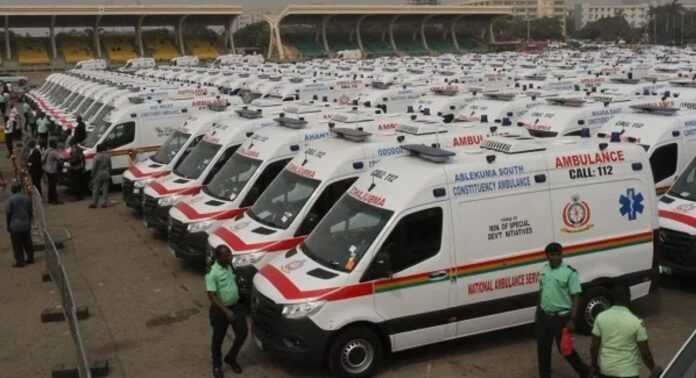Ghana’s development is hindered by its underdeveloped railway system, which fails to connect all 16 regions.
Despite gaining independence 67 years ago, the country still lacks a reliable and efficient railway network, forcing citizens to rely on vehicular transport and endure stressful commutes.

Research suggests that a robust railway system can reduce traffic congestion by 7%, travel time by 1%, and pollution by 3%.
Imagine a network connecting major cities, easing pressure on commercial transport, and clearing roads.
Commuters wouldn’t have to stress about long hours in traffic, and employment opportunities would increase.
A functioning railway system would also address the transportation crisis, making it easier for people to take job offers in different cities.
Additionally, rent prices in Accra would decrease, as people could easily commute from surrounding towns.
The current state of Ghana’s railway system is alarming, with only a few operating lines and most lines either non-functional or abandoned.
This neglect has led to a significant decline in rail line effectiveness (16.9% in 2020) and accessibility to railway services (0.6% in 2020), according to (link unavailable)
In contrast, countries with robust railway systems have seen notable improvements in transportation.
Nigeria, for example, has made significant strides in developing its railway network.
Ghana’s governments, past and present, have failed to prioritize the revival and development of the railway system, leaving a legacy of unfulfilled promises.
The Ministry of Railways Development’s website shows no evidence of ongoing or completed projects, despite listing priority projects.
Therefore, a robust railway system would bring immense benefits to Ghana, including reduced traffic congestion, increased employment opportunities, and improved transportation.
It’s time for the government to prioritize this critical infrastructure development and unlock the country’s full potential.
























































![[FREE FREE MONEY] Predict and Win a Guaranteed GH¢200 From Us EVERY WEEK](https://wordpress.ghanatalksradio.com/wp-content/uploads/2022/02/Predict-and-Win-Final-09-03-2021-218x150.jpg)
![[Predict & Win – 8th/Oct.] WIN A Guaranteed ¢200 From Us This Week](https://wordpress.ghanatalksradio.com/wp-content/uploads/2021/10/maxresdefault-16-218x150.jpg)
![[Predict & Win – 2nd] WIN A Guaranteed ¢200 From Us This Week](https://wordpress.ghanatalksradio.com/wp-content/uploads/2021/09/maxresdefault-50-218x150.jpg)
![[Predict & Win – 25th] WIN A Guaranteed ¢200 From Us This Week](https://wordpress.ghanatalksradio.com/wp-content/uploads/2021/09/maxresdefault-36-218x150.jpg)
![[Predict & Win – 18th] WIN A Guaranteed ¢200 From Us This Week](https://wordpress.ghanatalksradio.com/wp-content/uploads/2021/09/maxresdefault-23-218x150.jpg)







![[National cathedral] See full list of churches that have contributed since 2018](https://wordpress.ghanatalksradio.com/wp-content/uploads/2020/09/Ghana-National-Cathedral-GhanaTalksRadio-100x70.jpg)


![[Photos] Ghana National Fire Service extends help to staff](https://wordpress.ghanatalksradio.com/wp-content/uploads/2023/02/GNFS-surgery-100x70.jpg)
